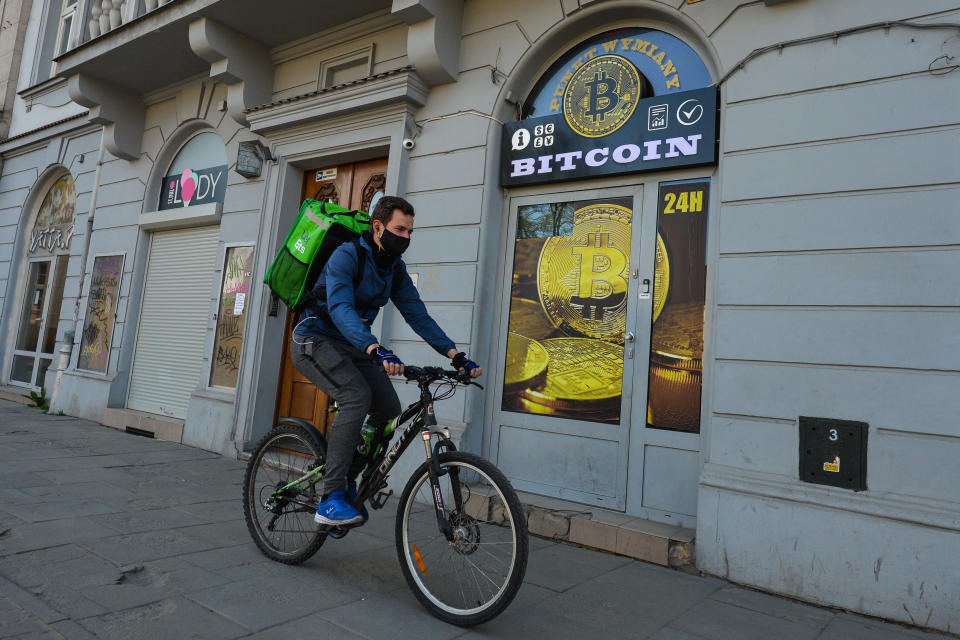Why bitcoin and altcoins are hot again this summer
In cryptocurrency markets, it feels like 2017 again.
Bitcoin (BTC) is up 35% since Memorial Day, and 133% since March 15, the date when widespread U.S. closures of schools and businesses began. That has helped bitcoin rebound to 64% up for the year so far, after crashing in March along with stocks. That’s better than double the gains of the Nasdaq, which is up 26% for the year. The S&P 500 is up only 5% for the year, and the Dow is still negative (down 1.2%) in 2020. Bitcoin was around $6,500 on March 24. Five months later, it’s near $12,000.
The gains by so-called “altcoins” have been even more impressive—or alarming. Ether (ETH), the token of the Ethereum network and the No. 2 cryptocurrency by market cap, is up 210% in 2020. Stellar Lumens (XLM), token of the Stellar network, is up 130%. Cardano (ADA) is up 274%. Algorand (ALGO) is up 200%. Dogecoin (DOGE), a meme-based cryptocurrency with no business purpose, is up 68%.
You’d be excused for not having heard of many of those tokens, even if you follow bitcoin prices. Some crypto onlookers fear that the huge gains for no-name coins signal another risky bubble akin to 2017. Coin Telegraph is calling this summer a new “altseason.” CoinDesk on Monday called it an “anything-goes token market.”
Andy Bromberg, president of Coinlist, which vets and lists new token sales, sees glimmers of 2017, but thinks this period might be different. Near, a new token that offered its initial sale through Coinlist, had so much demand it crashed the site.
“There’s some great stuff happening, and things that are compelling and have legitimate long term promise, but also there are a lot of people who just see an opportunity to grab cash,” says Bromberg. “Just like in 2017, it’s really hard to vet these things. Some are obviously idiotic. The noise comes along with the signal. So as an investor in the space, you should be cautious, because the more good things that come out, the more scammy things come out too. But you should also be excited.”

Now to the obvious question: Is the rise in crypto prices thanks to the COVID-19 pandemic?
Cryptocurrency investors are saying yes—in part. Most of them point to the actions of the Federal Reserve, and of other central banks globally, as fuel for the appeal of bitcoin as a hedge. (Gold, a more mainstream hedge, is up 29% in 2020.)
“There’s so many uncertainties in this pandemic, but one thing that seems almost assured is when you print trillions of dollars more paper money, it’s going to drive up bitcoin and other cyptocurrencies,” says Dan Morehead, CEO of crypto investment firm Pantera Capital. “Gold’s going to go up, bitcoin’s going to go up. It is a hedge to paper currency being debased.”
Pantera’s digital asset fund is up 130% in 2020, and Morehead believes that in the next year, “The non-bitcoin cryptocurrencies will outperform bitcoin.”
In the same spirit, Pantera still believes in ICOs (initial coin offerings), the token sales that exploded in 2017, then shrunk after the U.S. Securities and Exchange Commission in 2018 made clear it saw most ICOs as unregistered securities offerings. “We have a fund that invests in pre-auction ICOs, and instead of seeing 50 white papers a week like we were doing at the peak in 2017, we invest in one or two every quarter. So the market is still there, it’s just much more selective.”
It also helps bitcoin when mainstream Wall Street names voice public support. In May, Paul Tudor Jones surprised skeptics when he said that he sees bitcoin as “a great speculation” and has moved 2% of his hedge fund’s money into bitcoin. That stands in direct contrast to Warren Buffett’s staunch view of bitcoin speculation: “That is not investing.”
—
Daniel Roberts is an editor-at-large at Yahoo Finance and closely covers bitcoin and blockchain. Follow him on Twitter at @readDanwrite.
Read more:
Bitcoin scams on Twitter are nothing new—and they work
Former CFTC chair says Ripple's XRP token is not a security—but Ripple is his client
What the third bitcoin halving means for crypto investors
Fed Chair Jay Powell grilled on China’s cryptocurrency plans and U.S. response
Reddit cofounder Alexis Ohanian: We are entering a 'crypto spring'

 Yahoo Finance
Yahoo Finance 
